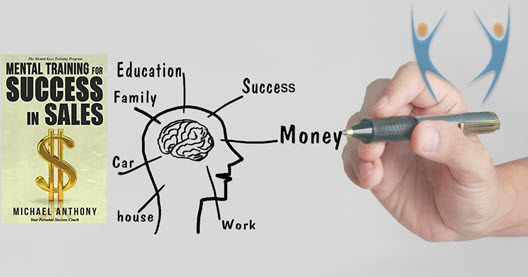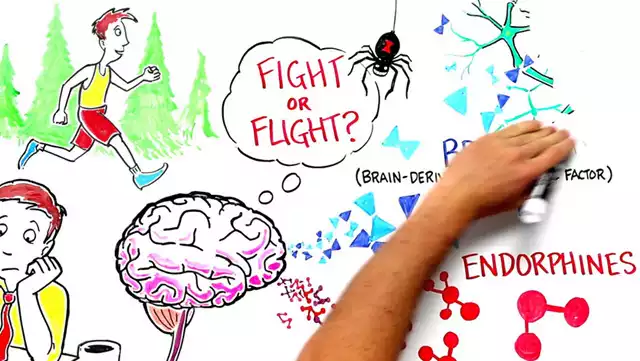Recovering From Divorce Mentally
Divorce is often likened to an emotional tsunami, sweeping away the foundations of life as you know it and leaving behind a turbulent sea of feelings.
While legal proceedings and logistics dominate the initial phase, the real challenge often lies in recovering from divorce mentally.
This journey is intricate and deeply personal, marked by moments of profound grief, unexpected relief, and everything in between.
Imagine waking up one day to realize that the person you’ve shared countless memories with is now a chapter past.
The world may appear unchanged outside your window, but inside, an upheaval has taken place.
How do you navigate this newfound reality without losing yourself in the process? In this article, we delve into practical strategies and heartfelt advice for rebuilding your mental well-being after such a seismic shift in your life’s narrative.
Your mental recovery is more than just healing; it’s about rediscovering who you are when the dust finally settles.
Divorce is a challenging and emotionally taxing experience that can leave individuals feeling lost, confused, and overwhelmed.
The end of a marriage not only marks the end of a significant relationship but also brings about a multitude of changes and adjustments in one’s life.
The mental toll of a divorce can be significant, ranging from feelings of anger, sadness, and grief to self-doubt and anxiety about the future.
However, despite the emotional turmoil, it is possible to recover from divorce mentally.
By acknowledging and addressing the impact of divorce on your mental well-being, you can take steps towards healing and rebuilding a fulfilling life.
In this article, we will explore the various aspects of recovering from divorce mentally, including understanding the emotions involved, seeking support, and developing coping mechanisms.
With a professional tone, we aim to provide guidance and insights to those navigating the complex process of healing from divorce.
Whether you are just starting your journey or are further along, this article will offer valuable advice and strategies to help you move forward and find happiness after divorce.
Table of Contents Recovering From Divorce Mentally
Acknowledge your emotions and feelings
It is crucial to acknowledge and give yourself permission to feel the range of emotions that come with the process of recovering from divorce.
It is natural to experience sadness, anger, confusion, fear, and even relief.
These emotions are valid and need to be acknowledged rather than suppressed or ignored.
By allowing yourself to fully experience and express your emotions, you create space for healing and personal growth.
Consider journaling, talking to a trusted friend or therapist, or engaging in activities that promote emotional release, such as meditation or exercise.
Remember that accepting and processing your emotions is an essential step towards rebuilding your mental well-being after divorce.
Seek therapy or counseling support
One valuable resource to consider in your journey of recovering from divorce is seeking therapy or counseling support.
The end of a marriage can be an emotionally challenging and overwhelming experience, and having a professional to guide you through this process can provide immense support.
A therapist or counselor can offer a safe and non-judgmental space for you to explore your feelings, thoughts, and concerns about the divorce.
They can help you develop coping strategies, navigate through grief and loss, and work towards rebuilding your self-esteem and confidence.
Additionally, therapy or counseling can assist in developing healthy communication skills and establishing boundaries as you navigate co-parenting or future relationships.
Seeking professional help is a proactive step in prioritizing your mental well-being and can significantly contribute to your overall healing and growth.
Practice self-care and self-compassion
During the process of recovering from divorce, it is crucial to prioritize self-care and practice self-compassion.
Divorce can bring about a range of emotions such as sadness, anger, and confusion.
Taking care of your physical and emotional well-being is essential in navigating these challenging times.
Engaging in activities that promote relaxation and stress reduction, such as exercise, meditation, or hobbies, can help alleviate emotional distress.
It is also important to practice self-compassion by acknowledging and accepting your feelings without judgment.
Be patient with yourself as you heal and allow yourself time to grieve the loss.
Remember that self-care and self-compassion are not indulgent, but rather necessary components of your mental health recovery after divorce.
Surround yourself with positive influences
In the process of recovering from divorce, it is crucial to surround yourself with positive influences that uplift and support your mental well-being.
Surrounding yourself with individuals who radiate positivity can have a profound impact on your emotional healing and personal growth.
Seek out friends, family members, or support groups who provide a nurturing and non-judgmental environment where you can freely express your thoughts and feelings.
Engaging in constructive conversations and activities with these individuals can help you gain new perspectives, build resilience, and foster a sense of belonging.
Additionally, exposing yourself to positive and motivational content, such as books, podcasts, or inspirational quotes, can serve as daily reminders of your strength and resilience as you navigate the challenges of post-divorce recovery.
By intentionally choosing to surround yourself with positivity, you create a space that promotes healing, empowerment, and personal transformation.
Set boundaries and prioritize yourself
Establishing clear boundaries and prioritizing yourself is essential for your mental well-being as you navigate through the process of recovering from divorce.
It is important to recognize your own needs and limitations and communicate them effectively to those around you.
This involves setting limits on what you are willing to accept or tolerate, whether it be in terms of your personal space, time commitments, or emotional involvement.
By setting boundaries, you assert your worth and protect yourself from potential harm or negativity.
Prioritizing yourself means making self-care a priority and ensuring that your needs are met before tending to the needs of others.
This may involve carving out time for activities that bring you joy and rejuvenation, seeking professional help or therapy, and learning to say no when necessary.
Remember that taking care of yourself is not selfish, but rather a necessary step towards healing and building a new and fulfilling life post-divorce.
Let go of guilt and regret
As you embark on your journey of recovering from divorce mentally, it is crucial to let go of guilt and regret that may be weighing you down.
It is natural to feel a range of emotions during this challenging time, but holding onto guilt and regret serves no purpose other than hindering your progress.
Recognize that the past is behind you, and you cannot change what has already happened.
Instead, focus on the present moment and the opportunity it presents for personal growth and healing.
Allow yourself to forgive, both yourself and your ex-partner, for any mistakes and shortcomings.
Understand that everyone makes mistakes, and it is through these experiences that we learn and grow.
Embrace self-compassion and remind yourself that you deserve happiness and peace in your life.
By releasing the burden of guilt and regret, you create space for new possibilities and a brighter future.
Focus on personal growth and healing
In order to navigate the process of recovering from divorce mentally, it is essential to prioritize personal growth and healing.
This transformative journey allows you to rediscover your identity, explore your passions, and develop a deeper understanding of yourself.
Engaging in activities that promote self-reflection and personal development can be immensely beneficial during this time.
Consider engaging in therapy or counseling to gain valuable insights and tools for emotional healing.
Additionally, exploring mindfulness practices such as meditation or journaling can help you cultivate a sense of inner peace and clarity.
Embrace opportunities to learn new skills or pursue hobbies that bring you joy and fulfillment.
By focusing on personal growth and healing, you are investing in your own well-being and setting the foundation for a brighter, more empowered future.
Embrace a new beginning
As you embark on your journey of recovering from divorce mentally, it is essential to embrace a new beginning.
This entails recognizing that the end of a relationship does not define your worth or determine your future.
Embracing a new beginning means accepting that change is a natural part of life and allowing yourself to let go of the past.
It involves cultivating a mindset of resilience, adaptability, and optimism as you navigate this transitional period.
Embracing a new beginning opens doors to new opportunities, personal growth, and the possibility of creating a life that aligns with your authentic self.
By embracing this mindset, you can approach each day with renewed hope and a sense of purpose, empowering yourself to move forward and build a fulfilling and meaningful life beyond divorce.
In conclusion, recovering from divorce is a complex and emotional process that requires time, self-reflection, and support.
It is important to prioritize your mental health and practice self-care during this difficult time.
Seeking professional help and surrounding yourself with a strong support system can also greatly aid in the healing process.
Remember, it is normal to experience a range of emotions and to take time to grieve the loss of a marriage.
With patience and self-compassion, you can come out of this experience stronger and more resilient.
FAQ
What are some common emotional challenges individuals face when recovering from a divorce mentally?
Some common emotional challenges individuals face when recovering from a divorce mentally include feelings of grief, loneliness, anger, guilt, and low self-esteem.
Adjusting to a new life without a partner, dealing with the impact on children, and navigating changes in social relationships can also contribute to emotional distress during this period.
Seeking support from friends, family, therapy, or support groups, practicing self-care, setting boundaries, and focusing on personal growth and healing can aid in overcoming these emotional hurdles and rebuilding mental well-being post-divorce.
How can therapy or counseling help individuals cope with the mental toll of a divorce?
Therapy or counseling can help individuals cope with the mental toll of a divorce by providing a safe space to process and express emotions, develop coping strategies, improve self-esteem, gain insight into the situation, and navigate the challenges of adjusting to a new reality.
Therapists can offer support, guidance, and tools to manage stress, grief, and any other emotional difficulties that may arise during this challenging time, ultimately promoting healing, personal growth, and a healthier mindset for moving forward.
What are some healthy coping mechanisms for managing stress and anxiety during the recovery process?
Healthy coping mechanisms for managing stress and anxiety during the recovery process include mindfulness meditation, deep breathing exercises, regular physical activity, engaging in hobbies or creative outlets, seeking support from a therapist or support group, maintaining a healthy diet, getting enough sleep, and setting realistic goals and boundaries.
It’s important to focus on self-care, practice relaxation techniques, and develop a routine that promotes overall well-being.
Remember to be patient with yourself and allow for gradual progress in managing stress and anxiety during the recovery journey.
How can individuals rebuild their self-esteem and confidence after a divorce?
After a divorce, individuals can rebuild their self-esteem and confidence by seeking therapy or counseling, focusing on self-care and personal growth, surrounding themselves with a supportive network of friends and family, setting new goals and challenges for themselves, practicing self-compassion and forgiveness, engaging in activities they enjoy, and reflecting on the lessons learned from the divorce to grow stronger and more resilient.
It’s important to give oneself time to heal and prioritize personal well-being during this process.
What role does self-care play in the mental recovery process after a divorce?
Self-care is essential in the mental recovery process after a divorce as it helps individuals prioritize their well-being, heal emotional wounds, and regain a sense of control over their lives.
Engaging in activities that promote self-love and self-compassion, such as exercise, therapy, meditation, and spending time with loved ones, can aid in managing stress, anxiety, and depression commonly experienced during this challenging time.
By taking care of their physical, emotional, and mental health, individuals can rebuild their self-esteem, develop resilience, and navigate the healing process more effectively post-divorce.







